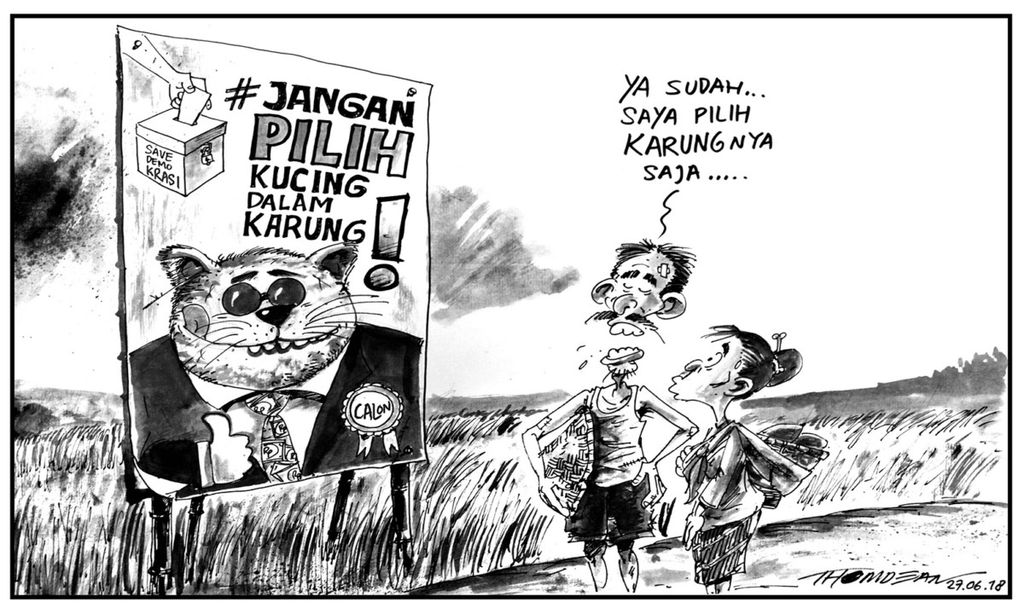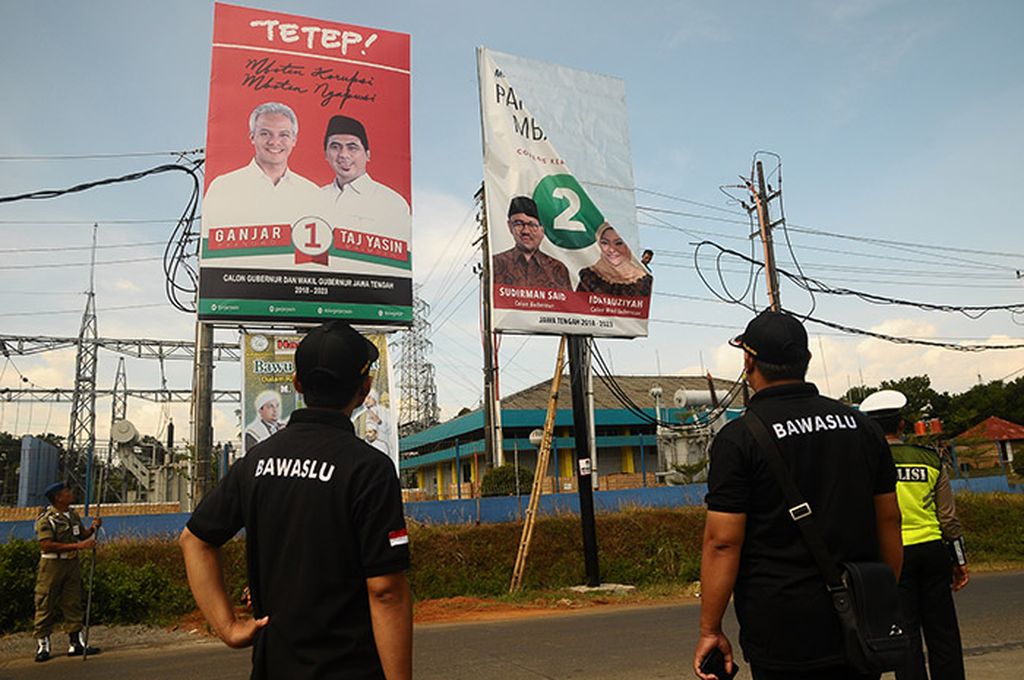Questions We Should Be Asking in Regional Election Campaigns
The televised debates between candidate pairs competing for regional leadership positions tended to focus on the themes of policy planning and regional development. Those programs were at the center of political rivalry between the candidates.

.
The televised debates between candidate pairs competing for regional leadership positions tended to focus on the themes of policy planning and regional development. Those programs were at the center of political rivalry between the candidates.
If the tasks and authorities of a regional head cover public policymaking with the local legislative council (DPRD) and leading the regional apparatus in the implementation of public policy, then the focus of debate should be directed at four issues.
Public policy implementation
The four issues are public policy planning or regional development programs, how the regional head will convince the DPRD to approve public policy plans (bylaws and regional budgets) with or without revision, how the regional head will lead public policy implementation and how the regional head will direct and manage the regional apparatus in implementing public policy.
The theme of debate about public policy planning or regional development, in fact, is not entirely related to government affairs, which is delegated to the head of the autonomous province or regency/municipality. Hardly any of the panelists, candidates and deputy candidates discussed the governance of autonomous provinces or regencies/municipalities. The issue has been included as an amendment to Law No. 9/2015 on the second revision of Law No. 23/2014 on regional administration.
Because most legislative councils in provinces and regencies/municipalities are fragmented between eight to 12 political parties, with no party holding a majority of DPRD seats (only about one in five local legislative councils has a party controlling 20-25 percent), one question should be how the prospective leader intends to secure approval from a fragmented legislative council.
Correct public policy planning (both in terms of problem-solving and meeting the aspirations of the public) would be useless if the regional head was unable to convince the DPRD for approval.

A Surabaya officer walks in front of a banner for candidates of the governor and deputy governor positions of East Java in Surabaya, East Java, Sunday (24/6/2018).
There are at least three models of decision-making at the DPRD, namely by consensus, by voting and by collusion. Based on observation, the model mostly used is collusion, meaning all political factions get their share. Several regional heads and DPRD leaders have been caught red-handed by the Corruption Eradication Commission for practicing collusion, or transactional politics.
Several heads of provinces or regencies/municipalities, who have strong leadership, outright rejected DPRD demands for aspirational or representative funds. An acting governor of a province in Sumatra made an offer to all factions: either they approve the aspirational fund, as long as the fund is spent as capital expenditure, or he would issue a decree to reuse the regional budget from the previous year, if the DPRD members did not propose a detailed budget. Ultimately, all DPRD members chose the first option.
Thus, it is worth questioning what kind of decision-making model a regional head would take if he or she were elected, to strike a deal with the DPRD. Then, it is also worth questioning if he or she has the courage to implement the model.
After the public policy plan on regional development is approved, the next question is how the regional head will lead the implementation of the plan. If the answers to the questions concerning development programs, such as what the regional head will offer and how he or she will seek DPRD approval, reflect political leadership qualities, then the question of how to lead regional policy implementation reflects administrative leadership quality.
Will the regional head fully hand the implementation of public policy (APBD, not APBD) over to the regional apparatus (SKPD) with certain conditions, or will he or she first issue a decree to detail the operationalization of the bylaw to be implemented by the SKPD? Does the substance of the regional head decree only explain the bylaw or detail it in terms of output, outcomes and all impacts?

Officers prepare for the Central Java gubernatorial election in Jepara, Central Java, Sunday (24/6/2018). Preparations were carried out by the General Elections Supervisory Board (Bawaslu), various officials and policemen ahead of voting day for the regional elections on June 27.
These questions, if paraphrased in administrative leadership models, should be put to regional head candidates: Will the regional head candidate give the SKPD authority to implement the regional policy based on their initiative, creativity and situation or will they only define the output and what to achieve (outcome) and what kind of impact it should have on society or the surrounding? The next question will be whether the candidate has the ability to implement the model. The competency and experience of the candidate will play an important role in the candidate’s administrative leadership.
The fourth issue to discuss is how the regional head candidate will direct the SKPD and the entire administration to implement public policy, how the elected regional head will explain the goals (output, outcome and impact) and regional development programs to the SKPD, how the regional head will motivate each SKPD and the regional administration to implement regional policy, how the regional head will follow regional policy implementation, how the regional head will correct mistakes, how the regional head will reward or punishment officials and how the regional head will know whether regional development is on target.
Regional head and deputy head
The last question relates to cooperation between the regional head and the deputy regional head in leading the autonomous region. Political practice in several regions has shown that the “honeymoon” of the regional head and deputy head lasted less than one year. Other regions see a solid working relationship between the regional head and the deputy, where the two even run for a second term together. The Regional Administration Law clearly details the division of labor between the regional head and the deputy.
/https%3A%2F%2Fkompas.id%2Fwp-content%2Fuploads%2F2018%2F06%2F20090409ARB5-2.jpg)
Ramlan Surbakti
Some regional heads are unable cooperate effectively with their deputies because the deputies want more authority in coordinating the SKPD or regional offices. The deputies want that job, because they think they did not get an important role, or some others want the job, because they intend to run for office for the next term. One thing is clear: The ship has only one captain, and the earth has one sun. Thus, all regional head candidates must be asked how they, as the captain, will divide the job and whether the deputies will get an important role. All deputy regional heads must be asked what role they will play under the leadership of the regional head.
All those questions should be the question of all voters. The answers to those questions can be obtained through the debates, aside from news in the media and discussions with friends. Ultimately, voters’ assessment of the answers to those questions will determine their votes in the June 27 regional elections.
Ramlan Surbakti, Professor in Political Comparison at Airlangga University, Surabaya, and member of Indonesian Academy of Sciences